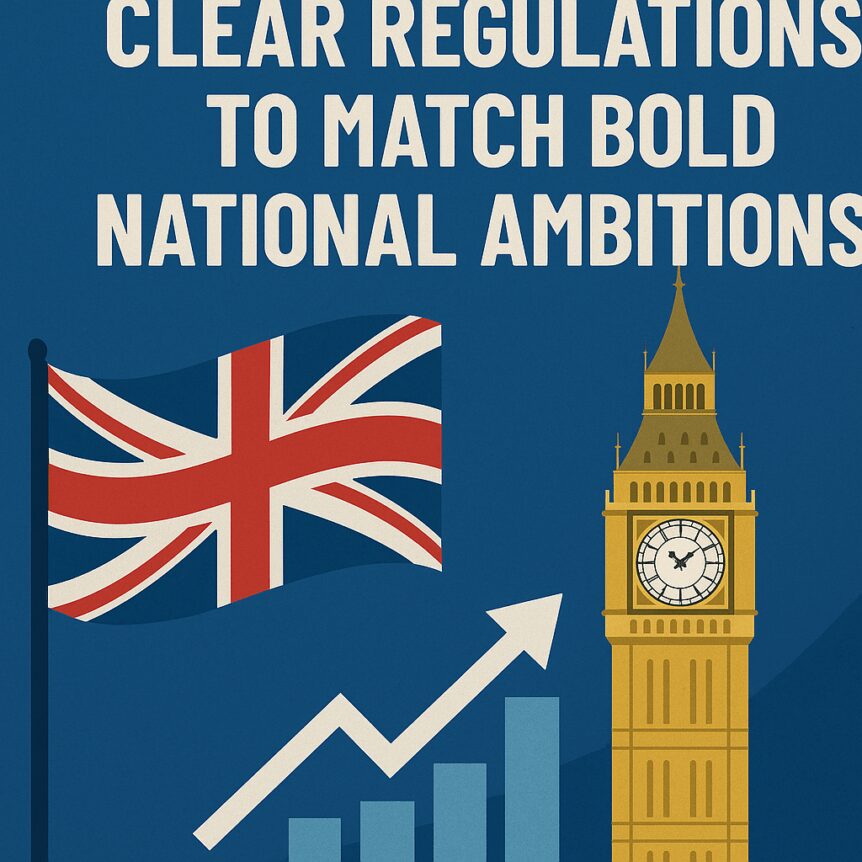UK Calls for Clear Regulations to Match Bold National Ambitions

The United Kingdom stands at a pivotal moment in its approach to cryptocurrency regulation. While the country has articulated ambitions to become a global hub for digital assets, progress has been sluggish and fragmented. Industry experts warn that without more decisive action, the UK’s competitive edge in the evolving blockchain and DeFi sectors could diminish, ceding ground to more proactive jurisdictions like the United States and Singapore. The path forward requires balancing strategic regulation with fostering innovation to ensure the UK remains a formidable player in the global crypto markets.
- The UK government has proposed a draft framework for crypto regulation, but practical implementation remains slow.
- Regulators like the FCA are engaging more actively, providing guidance and hosting industry consultations to promote responsible innovation.
- Crucial gaps exist around DeFi regulation, listed crypto products, and balancing regulatory burdens with privacy concerns.
- Other global regions like the EU and Singapore have established clearer, more comprehensive crypto rules, setting a competitive standard.
- Amid uncertainties, there is still an opportunity for the UK to strengthen its position and become a leader in the global crypto economy.
Bold ambitions and slow delivery
The UK’s financial regulation landscape for digital assets is evolving, with the Financial Conduct Authority (FCA) working alongside the government to develop a cohesive regulatory framework. The government’s recent proposal of a Draft Statutory Instrument (SI) signals an important step toward creating a crypto-friendly environment, but it remains a modest advancement amid ongoing delays.
Industry stakeholders have expressed concern over the slow pace of reform, especially regarding listed crypto products such as ETFs, which continue to face bans despite earlier moves to open retail access to crypto exchange-traded notes (ETNs). The ambiguity surrounding DeFi regulation further hampers industry growth, as firms grapple with unclear boundaries between DeFi and traditional finance segments.
Onerous reporting requirements, including automated tax reporting to HMRC, threaten to discourage investor participation and push capital to jurisdictions with more favorable tax regimes. Industry groups argue that without responsive adjustments based on feedback, the UK risks falling behind in the global competition for crypto innovation and investment.
An engaged regulator
Unlike the government’s reactive stance, the FCA has taken a more strategic, consultative approach by hosting industry roundtables and issuing a phased “Crypto Roadmap.” This proactivity fosters transparency and offers clearer guidance on implementing rules that safeguard consumers and market integrity, while supporting responsible innovation.
However, ensuring proportional regulation remains a challenge. Larger firms may adapt easily, but smaller startups could be deterred by compliance burdens, which risks stifling the UK’s entrepreneurial crypto scene. Striking the right balance is crucial to maintaining a vibrant and competitive market ecosystem.
A path toward crypto leadership
While the UK lags behind some regions, there is still time to accelerate. The EU’s comprehensive Markets in Crypto-Assets Regulation (MiCA), the US’s innovative approaches under the GENIUS Acts, and Singapore’s progressive licensing frameworks exemplify the moves that could propel a jurisdiction into a leadership position.
By aligning this regulatory momentum with decisive action, coordinated development, and clear implementation, the UK can capitalize on its existing foundations and establish itself as a global leader in the commercial blockchain ecosystem, affirming its ambitions in the fast-moving world of cryptocurrency and decentralized finance.
This article was originally published as UK Calls for Clear Regulations to Match Bold National Ambitions on Crypto Breaking News – your trusted source for crypto news, Bitcoin news, and blockchain updates.
También te puede interesar

House Judiciary Rejects Vote To Subpoena Banks CEOs For Epstein Case

200,000,000 XRP out in 2 Weeks: What’s Going On?
